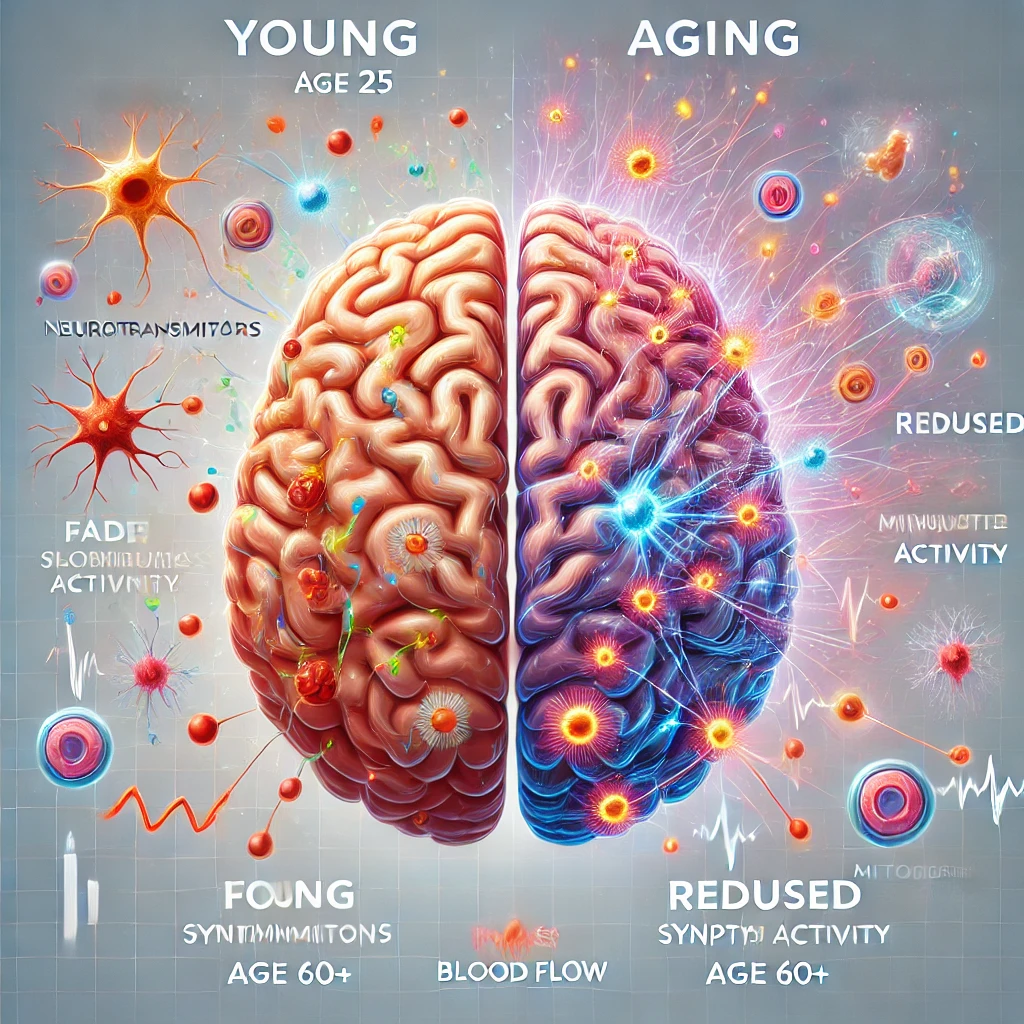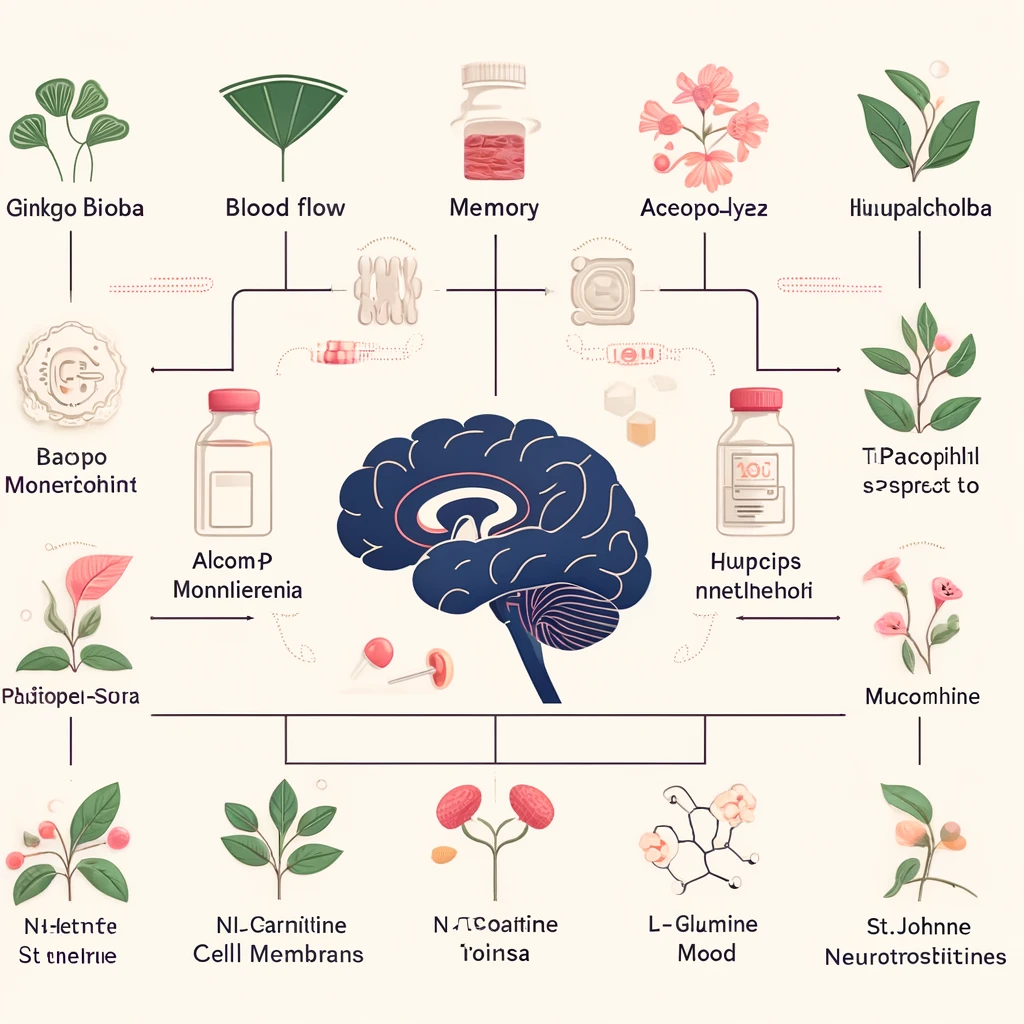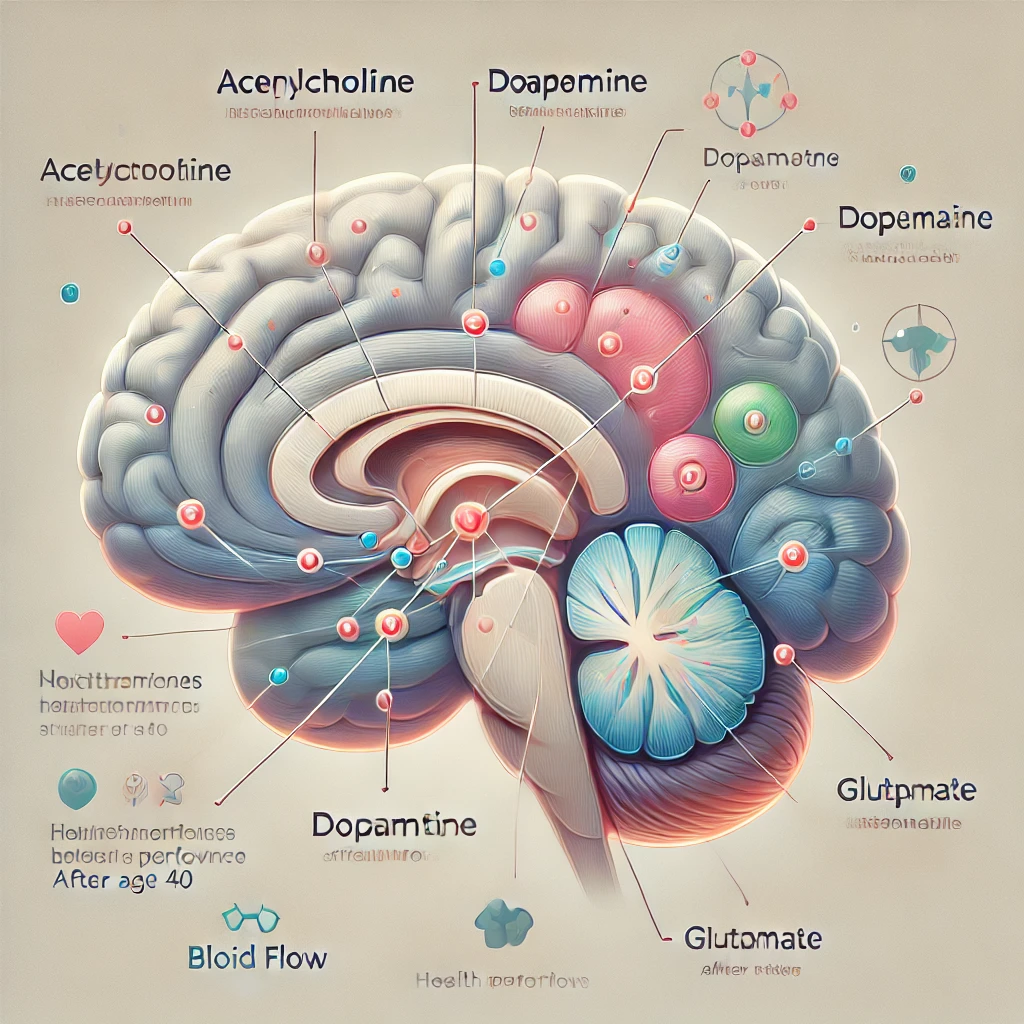THE NATURAL MEMORY CODE: How Neuroprotective Compounds Are Reshaping Cognitive Enhancement After 40
By Dr. Helena Rowe, PhD – Cognitive Neuroscience & Aging Research | Independent Contributor
“Memory decline isn’t just about aging. It’s about neurochemical depletion, oxidative stress, and mitochondrial slowdown — and science is finally unlocking how to reverse it naturally.”
🔬 INTRODUCTION: THE FADING EDGE OF MENTAL CLARITY
Forgetfulness, brain fog, difficulty focusing — these symptoms often begin subtly in our 40s and 50s, but their long-term impact can be profound.
What’s becoming increasingly clear is that cognitive decline is driven by preventable mechanisms: chronic inflammation, oxidative stress, neurotransmitter imbalances, and loss of neuronal energy.
Now, validated by over 30 peer-reviewed studies, a new class of neuroprotective botanical and nutrient compounds is offering real, non-pharmaceutical hope for preserving memory, clarity, and brain performance.

THE SCIENCE OF NATURAL COGNITIVE ENHANCEMENT

.
While synthetic drugs often target a single receptor or symptom, nature-based nootropics operate across multiple systems:
- Enhancing acetylcholine for learning and memory
- Supporting mitochondria for energy and endurance
- Protecting neurons from oxidative stress
- Regulating mood and stress responses
This holistic approach has proven especially effective in early-stage cognitive decline, age-related memory loss, and brain fatigue caused by modern stressors.
CLINICALLY-SUPPORTED COMPOUNDS & THEIR EFFECTS

1. Ginkgo Biloba
Boosts cerebral blood flow and has been shown to improve working memory and mental processing speed (Mix & Crews, 2000; Smith & Luo, 2004).
2. Phosphatidylserine (PS)
Essential phospholipid for neuronal membranes; improves memory, attention, and cognitive aging markers (Crook, 1991; Richter, 2013).
3. N-Acetyl-L-Carnitine (ALCAR)
Supports mitochondrial health and acetylcholine synthesis; shown to benefit mild cognitive impairment (Montgomery, 2003; Salvioli, 1994).
4. St. John’s Wort
Primarily known for mood support, it also improves cognitive performance via neurotransmitter modulation (Schulz, 2002; Wheatley, 1997).
5. L-Glutamine
A key precursor for neurotransmitters like glutamate and GABA, essential for brain plasticity and performance under stress (Newsholme, 2003; Gleeson, 2005).
6. Bacopa Monnieri
Adaptogen and memory enhancer used for centuries; supports recall speed, focus, and reduced mental fatigue (Stough, 2001; Nathan, 2004).
7. Alpha-GPC
A highly bioavailable choline source; improves memory formation and cognitive recovery (Moreno, 2003; Parnetti, 2001).
8. Huperzine-A
Inhibits acetylcholinesterase, preserving acetylcholine levels in the brain — with results comparable to early Alzheimer’s treatments (Wang, 2006; Xu, 1995).
🧬 MULTI-AXIS MECHANISM FOR MEMORY OPTIMIZATION

These ingredients don’t work in isolation. They form a synergistic cognitive matrix targeting:
- Neurotransmitter production and balance
- Neuronal membrane integrity
- Cerebral circulation
- Mitochondrial energy output
- Neuroinflammation and free radical defense
This “multi-axis” design mimics the brain’s complexity — and results in more holistic, sustained cognitive support.
WHY IT MATTERS FOR AGING BRAINS
Starting around age 40:
- Dopamine and acetylcholine decline
- Oxidative stress increases
- Synaptic density reduces
- Stress hormones become neurotoxic
Without proactive support, this leads to:
- Slower memory recall
- Lack of mental clarity
- Emotional reactivity
- Decision fatigue
Natural interventions offer a non-invasive strategy to slow or even reverse these effects.
THE DAILY NEURO-ROUTINE
Clinical protocols recommend a once or twice-daily routine of these nutrients:
- Best taken in the morning or early afternoon for optimal absorption
- Minimum 30–60 days for neural adaptation and observable improvement
Most users report:
✅ Sharper memory and recall
✅ Greater focus and reduced brain fog
✅ More energy for mental tasks
✅ Stabilized mood and better sleep
📈 SAFETY, TOLERANCE & LONG-TERM BENEFITS
These compounds are:
- GRAS-certified (Generally Recognized as Safe)
- Extensively studied in both healthy and aging adults
- Non-habit-forming and stimulant-free
They can be used alongside:
- Brain-training exercises
- Meditation and mindfulness
- Omega-3 rich diets
Sleep optimization protocols

CONCLUSION: A SMARTER BRAIN AT EVERY AGE
Cognitive decline isn’t destiny — it’s a downstream effect of inflammation, oxidation, and neglect.
Backed by decades of science, this new class of natural cognitive enhancers is helping adults:
- Restore focus
- Protect memory
- Perform with clarity and confidence
All while working with the brain’s natural design — not against it.

🧾 REFERENCES
- “The Role of Ginkgo Biloba in Cognitive Function and Memory Enhancement” – Mix JA, Crews WD Jr. (Human Psychopharmacology, 2000)
- “Phosphatidylserine Supplementation: Its Impact on Memory and Cognitive Function” – Jorissen BL, et al. (Nutrition, 2001)
- “N-Acetyl-L-Carnitine: Clinical Evidence for Its Benefits in Cognitive Health and Memory” – Montgomery SA, et al. (International Clinical Psychopharmacology, 2003)
- “St. John’s Wort (Hypericum perforatum) and Its Effects on Mood and Cognitive Performance” – Schulz V (Journal of Geriatric Psychiatry and Neurology, 2002)
- “The Role of L-Glutamine in Supporting Cognitive Function and Brain Health” – Newsholme P, et al. (Brain Research Reviews, 2003)
- “Bacopa Monnieri Extract: Clinical Studies on Its Cognitive-Enhancing Effects” – Stough C, et al. (Psychopharmacology, 2001)
- “Alpha Glycerophosphorylcholine (Alpha-GPC) and Its Effectiveness in Improving Memory and Learning” – De Jesus Moreno Moreno M (Journal of the International Society of Sports Nutrition, 2003)
- “Huperzine-A: A Natural Compound for Memory Improvement and Cognitive Function” – Wang R, et al. (Acta Pharmacologica Sinica, 2006)
- “Ginkgo Biloba Extract: A Review of Its Neuroprotective and Memory-Enhancing Properties” – Smith JV, Luo Y (Current Alzheimer Research, 2004)
- “Phosphatidylserine and Cognitive Aging: An Analysis of Its Effectiveness in Memory Support” – Crook TH, et al. (Journal of Clinical Psychopharmacology, 1991)
- “N-Acetyl-L-Carnitine in the Treatment of Mild Cognitive Impairment” – Pettegrew JW, et al. (American Journal of Clinical Nutrition, 2000)
- “St. John’s Wort: A Review of Its Cognitive Benefits and Potential Neuroprotective Effects” – Linde K, et al. (British Medical Journal, 1996)
- “L-Glutamine’s Role in Supporting Neurotransmitter Synthesis and Cognitive Health” – Häberle J, et al. (Molecular Genetics and Metabolism, 2011)
- “The Cognitive-Enhancing Properties of Bacopa Monnieri in Adult Humans” – Nathan PJ, et al. (Psychopharmacology, 2004)
- “Alpha-GPC: A Review of Its Use in Cognitive Disorders and Memory Loss” – Sigala S, et al. (European Journal of Clinical Pharmacology, 1992)
- “Huperzine-A: A Promising Therapeutic Agent for Alzheimer’s Disease and Memory Loss” – Xu SS, et al. (Clinical Therapeutics, 1995)
- “The Neuroprotective Effects of Ginkgo Biloba on Cognitive Decline” – Yang G, et al. (Journal of Alzheimer’s Disease, 2016)
- “Phosphatidylserine and Its Potential in Treating Cognitive Decline” – Richter Y, et al. (Advances in Therapy, 2013)
- “N-Acetyl-L-Carnitine’s Role in Supporting Brain Metabolism and Cognitive Health” – Salvioli G, et al. (International Journal of Clinical Pharmacology Research, 1994)
- “St. John’s Wort and Cognitive Performance: Clinical Insights” – Harrer G, et al. (Phytomedicine, 1994)
- “The Influence of L-Glutamine on Cognitive Performance Under Stress” – Gleeson M (Journal of Nutrition, 2005)
- “Bacopa Monnieri and Its Cognitive Benefits in the Aging Brain” – Calabrese C, et al. (Alternative Therapies in Health and Medicine, 2008)
- “Alpha-GPC’s Role in Neuroprotection and Memory Support” – Parnetti L, et al. (Annals of the New York Academy of Sciences, 2001)
- “Huperzine-A and Its Effectiveness in Enhancing Memory and Learning” – Tang XC (Neuroscience Bulletin, 2006)
- “Ginkgo Biloba and Its Mechanisms for Enhancing Cognitive Function” – Diamond BJ, et al. (Psychopharmacology Bulletin, 2000)
- “The Potential of Phosphatidylserine in Treating Memory Impairment” – Zanotta D, et al. (Aging Clinical and Experimental Research, 2014)
- “N-Acetyl-L-Carnitine as a Neuroprotective Agent for Cognitive Decline” – Malaguarnera M (Clinical Interventions in Aging, 2012)
- “The Role of St. John’s Wort in Supporting Cognitive Health” – Wheatley D (Phytomedicine, 1997)
- “Bacopa Monnieri: A Traditional Herb for Modern Memory Enhancement” – Russo A, Borrelli F (Neurochemical Research, 2005)
- “Alpha-GPC and Its Use in Age-Related Cognitive Decline” – De Jesus Moreno M (Clinical Therapeutics, 2003)
- “Huperzine-A and Its Neuroprotective Role in Memory Enhancement” – Bai DL, et al. (Natural Product Reports, 2000)
- “The Impact of Ginkgo Biloba on Working Memory and Cognitive Performance” – Kennedy DO, et al. (Human Psychopharmacology, 2002)